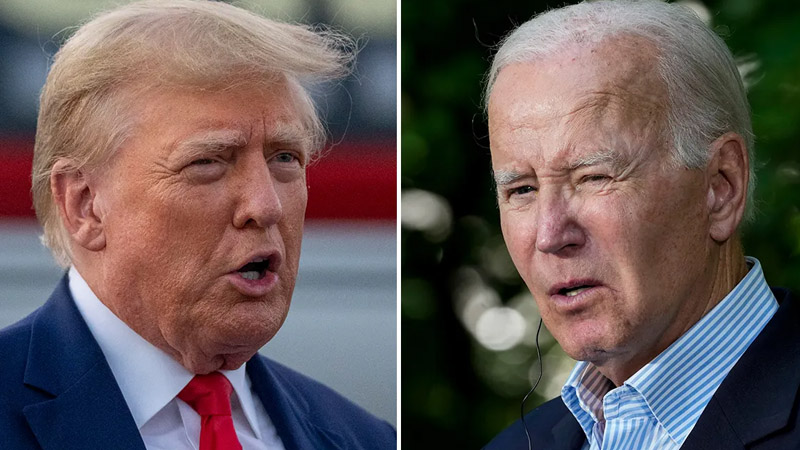In a report published by the Pew Research Center on July 11 titled, “Amid Doubts About Biden’s Mental Sharpness, Trump Leads Presidential Race,” the Washington, DC-based think tank highlighted that after President Joe Biden’s underwhelming debate performance in June, Donald Trump gained a “4 percentage point lead over Biden among registered voters.”
A week earlier, The New York Times reported, “Mr. Trump now leads Mr. Biden 49 percent to 43 percent among likely voters nationally, a three-point swing toward the Republican from just a week earlier, before the debate. It is the largest lead Mr. Trump has recorded in a Times/Siena poll since 2015.”
However, in a Sunday, August 4 article published by The Washington Post, columnist EJ Dionne explores why the former president has transitioned from a position of dominance to “desperate” in his bid to secure the White House in November.
“Trump’s success in 2016, and his ability to retain control over the Republican Party since have rested on his mastery of oppositional politics and his skill at using abnormal behavior to prove to disaffected voters that he’s no mainstream politician,” Dionne writes. These strategies appeared effective until Biden stepped aside and endorsed Vice President Kamala Harris as his successor, Dionne suggests.
When Harris took center stage last month, Dionne notes that Trump’s “often-disjointed screeds suddenly felt like the ravings of a grumpy old man, not entertaining breaks from politician-speak. Trump had always fed on the energy of his crowds. ‘Low energy’ is a favorite Trump epithet against his foes. Now Harris has the energy, and her audiences seem positively rapturous.”
Dionne argues this shift in dynamics is “why 2024 may be Trump’s undoing.” He adds, “We have been here for nine long years.” Reflecting on Trump’s 2016 victory over former Secretary of State Hillary Clinton, Dionne writes, “Trump was so novel and such a viewer-magnet that his harangues were often shown in full on cable television. Sometimes, the media preferred showing empty lecterns anticipating Trump’s arrival to broadcasting the words of his foes in either party.
And, for a while in 2016, the media occasionally rationalized their decisions by blaming Clinton for not being interesting enough.” However, “That’s not happening anymore,” Dionne emphasizes. “Or, at least, not to the same degree, because Trump’s act has grown tired and often boring.”
Dionne’s analysis suggests that Trump’s current lead in the polls might not be a sign of strength, but rather a reflection of his increasingly desperate tactics as the political landscape evolves with Harris’s growing influence and enthusiasm.

